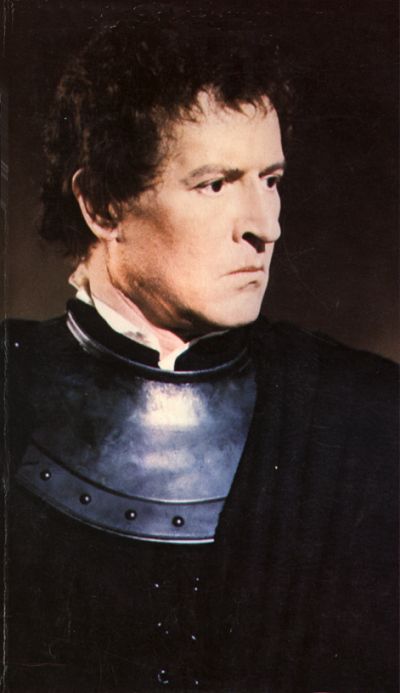In his "angry preoccupation with killing" Caius Marcius, later Coriolanus, was "repellent as a man" and "barely credible as a general" and promulgated the liberal and civilised General Sir John Hackett when aiming to get Shakespeare in Perspective (BBC2) on Saturday night. This Roman champion lacked the capacity of the modern military commander for regarding his enemy with dispassionate cool.
This view was unequivocally backed through Elijah Moshinsky's direction of Coriolanus (BBC2), the latest contribution to "The BBC Television Shakespeare," which presented the struggle between the sadomasochistic hero and his Volscian opponent as sweatingly erotic in its passionate hatred.
No Volscian conspirators were needed to assist Aufidius in his final liquidation of the hero. It was Caius Marcius himself who shouted "Kill, kill, kill," as the two opponents went into their last orgasmic embrace. As the sword penetrated it was as much suicide as murder.
Earlier when the champion was persuaded to ask the Romans for their support in his election as consul he was overcome by more than his usual self-consciousness. To show off his wounds as required would have been to expose his most private places, his darkest perversion. No wonder he was inclined to fight alone.
This interpretation, carried with such marvellous intensity by Alan Howard, still left his Coriolanus as the noblest of the Romans on view. Beside the envious tribunes, Scinius and brutus, and the time-serving Menenius, he was seen to have integrity. His pride and his absolutism were horrible but preferable to the shifty play of the politicians who depended on his dirty work at the battlefield.
